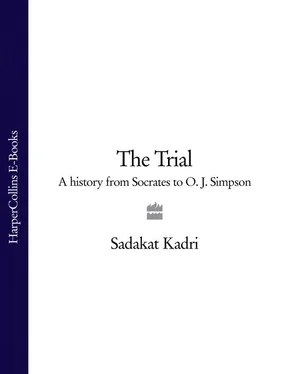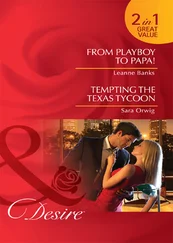The balance remains the most potent image of justice in the Western world. But as it migrated into modern Europe from Egypt and Babylon, via Jews, Greeks, Romans and barbarians, the meaning of its symbolism would be decisively transformed. No story better exemplifies that than one from the career of Sir Edward Marshall Hall, a famous British barrister of the early twentieth century.
Marshall Hall was defending one Edward Lawrence, charged in 1909 with having murdered his lover with a gun. Lawrence entered the dock with one foot already on the scaffold. He had admitted to police that he had shot her, and declared that he was ‘glad’ to have done so, because she was ‘wicked’ and ‘best dead’. But by the end of the defence case, words that had seemed so damning no longer sounded worse than callous. Lawrence had claimed from the witness box that the victim died accidentally as he was pulling a gun from her. He had re-enacted the struggle three times, so convincingly that even the judge was privately persuaded of his innocence. More than twenty witnesses had told the jury about the victim’s ferocious temper and frequent threats against Lawrence. By the time that Marshall Hall came to make his final speech, a case that had seemed black and white was turning very murky – and it was to uncertainty itself that he now appealed. Standing with arms outstretched, he asked the jurors to imagine ‘a great statue of justice holding those two scales with equally honest hands’ and began methodically to go through the evidence for and against his client. First one side, and then the other, he told them – swaying all the while – might seem lower. It might be almost impossible to say which side was closer to the ground. And as the jurors watched, entranced, came the punchline.
Then in the one scale, in the prisoner’s scale, unseen by human eye, is placed that overbalancing weight, the weight of the presumption of innocence…it is your duty to remember the invisible weight of that invisible substance.
With those words, he let one arm drop with a thud to the bench. The jury acquitted after twenty minutes.
The journey from the Hall of Two Truths to the Old Bailey is a vast one. It crosses from the marbled courtrooms of Athens to the ordeal pits of Anglo-Saxon England, passing from the torture chambers of the Inquisition to the judicial theatres of Salem in the 1690s and Moscow in the 1930s. Justice and vengeance, secrecy and spectacle, and superstition and reason intertwine continually along the way, but this book’s trajectory is a straightforward one. At a time when governments appear increasingly unsure whether the criminal trial is a dispensable relic or a touchstone of liberty, it explores why the West came to regard the invisible doubt as a more reliable guide to justice than the feather of truth.
This book is concerned with only the Western legal tradition, and although it covers continental law in some detail in the first few chapters, its modern focus is on the Anglo-American jury trial and the war crimes trial. Any attempt to broaden its scope would have required either oversimplification or a work twice as long, and would probably have produced both. Whether the quality of Western justice is better or worse than that of the justice of other cultures is a question that I have happily ducked. The book’s subject is the brutality or nobility of the West’s institutions, and the extent to which those institutions have honoured or betrayed the ideals for which they claim to stand.
It is only our conception of time that makes us call the Last Judgment by that name; in fact it is a permanent court-martial.
FRANZ KAFKA, Aphorisms
One of the few things that humanity has agreed upon for most of history is that its laws descend directly from the gods. The oldest complete legal code yet discovered, inscribed onto a black cone by the Babylonians almost four thousand years ago, shows Shamash, god of the sun, enthroned and handing down his edicts to a reverential King Hammurabi. Jehovah reportedly did much the same thing a few centuries later, carving ten commandments onto two tablets with His own finger as Moses stood by on fiery Mount Sinai. Coincidentally or otherwise, it was said of Crete’s King Minos that he climbed Mount Olympus every nine years to receive legal advice from Zeus. Ancient cultures were equally certain that the power to adjudicate breaches of the law rested ultimately in the hands of the gods. The methods of enforcement were often as terrible as they were mysterious – ranging from bolts of lightning to visitations of boils – but the justice of the punishments was as unquestionable as the law that they honoured.
And yet, for all the insistence that heavenly laws were cast in stone and divine judgments unerring, one question always caused turmoil – namely to whom, down on earth, had the right to judge been delegated? The priests who veiled their various scrolls and statutes invariably argued that only they could interpret their secrets, backing up the claim with further revelations as and when required. Monarchs were no less assertive, and constantly sought to interfere with the religious mysteries of justice. Some even argued that the power lay elsewhere. Among the Hebrews, for example, an old tradition prescribed that homicides should be tried by common people, and although Judah’s priests established something close to a theocracy after 722 BC, their oldest myth of all characterized the ability to tell good from evil as every human being’s birthright. The story of the Fall was not, admittedly, a ringing endorsement of the power to judge – Adam and Eve had, after all, paid for their apple with sorrow, sweat, and death – but it was certainly a start.
The Athenians would produce a considerably more robust illustration of humanity’s inherent sense of justice: Aeschylus’ Oresteia , the oldest known courtroom drama in history. The trilogy, first performed in 458 BC, retells the ancient myth of Orestes, scion of the royal house of Atreus – a bloodline as polluted as any that has managed to perpetuate itself on this earth. The corruption had set in when its founding father Tantalus chose, for imponderably mythic reasons, to slaughter his son, boil the body, and serve it up as soup to the gods. Aggrieved Olympians condemned him to an eternity of tantalization, food and drink forever just out of reach, and resolved to visit folly, blindness and pride on his offspring for evermore. Family fortunes began a rapid decline, and by the time that Tantalus’ great-great-grandson Orestes reached adulthood, its history of rape, incest, cannibalism, and murder had generated a degree of domestic dysfunction that was pathological even by the standards of Greek mythology.
The play opens with news that Agamemnon, commander of the Greek armies and father of Orestes, has just triumphed at the Trojan Wars. But all is not well. Victory was purchased through the sacrifice of his own daughter, Iphigeneia, and he has abducted Cassandra, the beautiful child of Troy’s King Priam, to have as his concubine. His wife, Clytemnestra, has meanwhile taken a lover of her own and sworn to avenge Iphigeneia. When Agamemnon returns to the marital home, as oblivious to the obvious as every tragic protagonist should be, the tension mounts. Cassandra waits at the gates while he enters its portals – and the princess, cursed to know the future but powerless to change it, sees horror ahead. Hopping and screeching on the palace eaves are the Furies, supernatural guardians of cosmic propriety, and throbbing deep within are visions of anguish: torn wombs, a soil that streams blood, a bath swirling red…and Agamemnon, dead. ‘I know that odour,’ intones Cassandra, as she steps up to the threshold. ‘I smell the open grave.’ Screams engulf her, and the first act closes with Clytemnestra exulting over the bodies of her husband and his prize, a bloody knife in her right hand. Her work, she proclaims, is a masterpiece of justice.
Читать дальше




![Theresa Cheung - The Dream Dictionary from A to Z [Revised edition] - The Ultimate A–Z to Interpret the Secrets of Your Dreams](/books/692092/theresa-cheung-the-dream-dictionary-from-a-to-z-r-thumb.webp)







